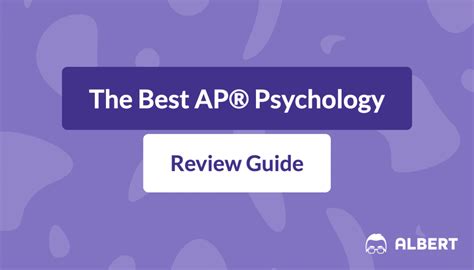Introduction

The Advanced Placement (AP) Psychology Free Response Questions (FRQs) are a challenging aspect of the exam, but with the right preparation, you can succeed. This article provides a comprehensive guide to the 2023 FRQs, covering key concepts, strategies, and potential topics.
Key Concepts
Understanding the following key concepts is crucial:
- Core Ideas in the AP Psychology Curriculum: Review the major theories, research methods, and topics covered in AP Psychology.
- Terminology and Definitions: Familiarize yourself with key terms and their definitions.
- Research Design and Methodology: Understand the principles of experimental and non-experimental research methods.
- Analyzing Data and Drawing Conclusions: Develop skills in interpreting data and making valid conclusions based on research findings.
Helpful Strategies for Answering FRQs
1. Structured Response Format
- Begin with a concise thesis statement that addresses the prompt.
- Provide supporting evidence from the study or research.
- Organize your answer using paragraphs and clear transitions.
- Include a concluding sentence that restates the thesis and summarizes the key points.
2. Time Management
- Allocate approximately 15 minutes per question.
- Read the prompt carefully and plan your response before writing.
- Focus on providing high-quality content rather than meeting a specific word count.
3. Evidence-Based Reasoning
- Cite specific studies or research to support your claims.
- Explain the methodology and findings of the research in detail.
- Avoid stating opinions or using anecdotal evidence.
4. Use of Psychology Terminology
- Demonstrate your knowledge of psychology terminology by using it accurately and appropriately.
- Define key terms or concepts within your answer.
Potential FRQ Topics
Based on the College Board’s official course description, potential FRQ topics include:
- Biological Bases of Behavior
- Sensation and Perception
- Learning
- Cognition
- Motivation and Emotion
- Developmental Psychology
- Personality
- Social Psychology
- Abnormal Psychology
Effective Strategies for Common FRQ Types
| FRQ Type | Effective Strategies |
|---|---|
| Experimental Design | Describe the purpose, hypothesis, and methodology of the study. Discuss the strengths and weaknesses of the design. |
| Data Analysis | Interpret data from graphs or tables. Calculate statistics and explain their significance. |
| Theoretical Perspectives | Compare and contrast different psychological theories and perspectives. |
| Case Studies | Analyze a case study and apply psychological concepts to understand the individual’s behavior. |
| Research Proposal | Propose a research study to investigate a psychological phenomenon. |
Common Mistakes to Avoid
- Vagueness and Generalizations: Avoid making broad statements without supporting evidence.
- Lack of Organization and Structure: Ensure your answer is well-organized and easy to follow.
- Ignoring the Prompt: Address the specific question being asked and avoid irrelevant information.
- Incomplete Analysis: Thoroughly analyze the research findings and provide a clear conclusion.
- Factual Errors: Double-check your facts and ensure your statements are accurate.
Sample FRQs from Previous Years
- 2022: Describe an experiment that investigates the effects of sleep deprivation on cognitive performance.
- 2021: Explain the role of observational learning in the development of aggression.
- 2020: Discuss the strengths and weaknesses of different research methods used to study the biological bases of behavior.
Conclusion
Succeeding on the AP Psychology FRQs requires a combination of knowledge, strategy, and practice. By understanding the key concepts, implementing effective strategies, and avoiding common mistakes, you can confidently approach the 2023 exam and achieve your desired score.
